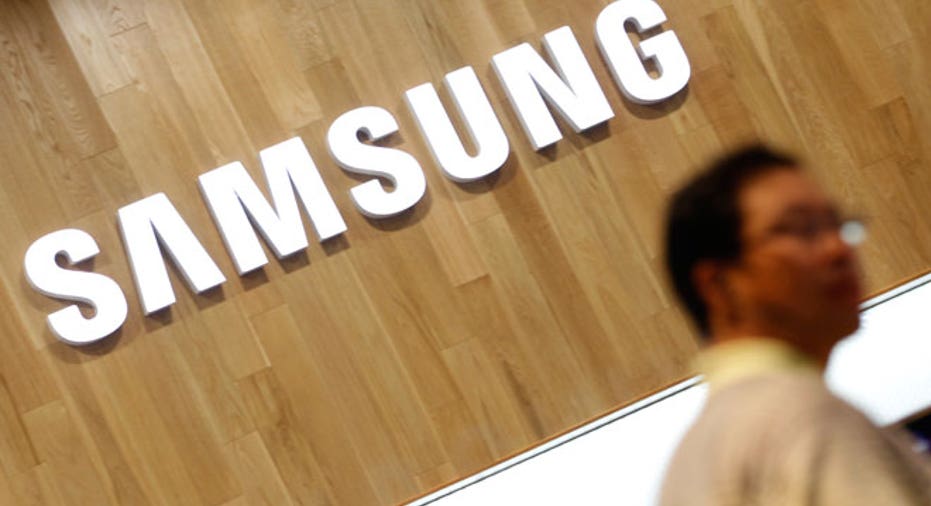Samsung Not Seen Quaking in Boots Over Apple-Elpida Report

Apple Inc will struggle to cut its reliance on rival Samsung Electronics for component supplies, analysts and industry sources said on Thursday, despite speculation that it has begun reducing its use of Samsung memory chips.
Samsung has lost 6 percent of its value, or $11 billion, since a Taiwanese trade news outlet reported on Wednesday that Apple had placed big new orders with Japanese chipmaker Elpida for dynamic random access memory (DRAM) chips.
The report has stoked concerns among Samsung investors that Apple wants to help turn the struggling Elpida, now in bankruptcy protection, into a much bigger supplier to the U.S. tech giant, partly at the expense of South Korea's Samsung.
Apple is Samsung's largest customer, buying chips and displays, but the pair are also bitter rivals for the sale of smartphones and tablets and are engaged in a patent war.
But tech analysts in the United States and South Korea said they doubted the report by Taiwan's DigiTimes, if confirmed, would signal major damage for Samsung and for its supplier links to Apple, despite the fierce selloff in Samsung shares.
"Apple has been diversifying its suppliers and the deal with Elpida had no major impact on other major suppliers as Elpida's share of the global mobile DRAM market is quite small," said one source with direct knowledge of Elpida's sales breakdown.
The source said Elpida was already selling more than half of its mobile DRAM chips to Apple - an estimate supported by Merrill Lynch - and that its current production offered limited scope in the short term to take market share from Samsung, which controls more than half of the global mobile DRAM market.
"(There's) nothing new in our view given Elpida usually assigns about 40-60 percent of its mobile DRAM capacity for Apple according to our channel checks," Merrill Lynch analyst Simon Woo said.
Lee Sun-tae, of NH Investment & Securities, agreed: "The market is overreacting to the news. Mobile DRAM accounts for only 10 percent of Samsung's overall operating profit ..."
DIVERSIFYING, NOT DITCHING: ANALYSTS
U.S.-based Micron Technology Corp is in talks to acquire Elpida's business as the Japanese firm tries to restructure after tough market conditions and global competition drove it into bankruptcy protection.
Apple did not response to queries on the report and Micron declined to comment. Samsung and Elpida's court-appointed trustees also declined to comment.
Apple has been facing supply constraints, with iPhone sales soaring to 35.1 million last quarter, leading some analysts to conclude that the California-based company is more worried about a free-flowing supply chain than reliance on Samsung.
"No company wants to have just one supplier. Just on that basis I think they're probably just shifting the (DRAM) balance, looking for equilibrium between two or three suppliers," said Monika Garg, an analyst at Pacific Crest.
"I don't think Apple would want to spoil their relationship with Samsung. They are their foundry."
A major shift away from Samsung could also be complicated and costly for Apple, analysts said, adding that Samsung currently supplied Apple with high-end DRAM chips which were faster and more power-efficient than Elpida's main chips.
Samsung and fellow South Korean chipmaker SK hynix , whose shares were also hit on Wednesday by the Apple-Elpida news, make chips with transistors that are 20 to 30 nanometers apart, giving them superior performance to Elpida's 40-nanometer class, according to analysts.
A nanometer is one millionth of a millimeter.
The mobile DRAM market is set to grow rapidly due to booming smartphone and tablet sales. SK hynix has around 22 percent of the market with Elpida on about 16 percent, analysts estimate.
Shares in Samsung were trading up 0.3 percent by 0450 GMT, after falling as much as 2.4 percent. Shares in SK hynix rallied sharply from Wednesday's selloff, up 6 percent.



















